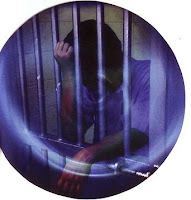



In 1988 the Narcotics Control Bureau (NCB) was established as a Government department under the Prime Minister's Office. It was aimed specifically at taking over the responsibilities of enforcing relevant drug laws in Brunei Darussalam, as well as activities in preventive drug education, which had until then been overseen by the Ministry of Education.
Mission: To support and promote awareness on the national policy on the abuse of drugs and intoxicating substances. To create a community free from the problems of misuse of drugs.
Function: Being the lead agency in enforcing the relevant laws pertaining to the eradication of abuse of drugs and intoxicating substances; to provide support services in demand reduction through Preventive Drug Education and Aftercare Services and serve as the main agency in coordinating all matters pertaining to the eradication of the abuse of drugs and intoxicating substances.
Current Illicit Drugs SituationThe extent of the drug problem in Brunei Darussalam is reflected only by indicator data, as there are no available national estimates of the number of drug abusers in the country. 64 clients were treated for substance abuse in 2003, while 94 drug seizures and 701 arrests for drug law violations were reported. By 2004, the number of illicit drug seizures had increased to 113, whereas the number of arrests had gone down significantly to 266. In 1990, the primary abuse problems were related to over-the-counter drugs. However, according to recent data, nearly 95% of recent seizures and arrests made relates to methamphetamine.
Based upon 2003 and 2004 law enforcement data, methamphetamine is the dominant illicit drug being abused and seized in Brunei Darussalam, and at present crystal form methamphetamine is reportedly the only type of methamphetamine available in the country. In 2005, the ranking of illicit drugs most often abused, cannabis comes second to methamphetamine followed by nimetazepam and ketamine.
Methamphetamine and cannabis are predominantly administered by smoking, while nimetazepam and ketamine are consumed orally. There have been reports of limited occurrences of methamphetamine injection among some abusers. There are no estimates of the Injecting Drug User (IDU) population or the percent of IDUs estimated to be infected with HIV.
Legislation for Illicit Drugs ControlThe main legislation for narcotics control in Brunei Darussalam is the Misuse of Drugs Act (MDA) Chapter 27, which on several occasions has been amended and revised. This legal instrument covers all illicit drug offenses and provides sentencing guidelines. The law specifies the amount and type of drugs that fall under its provisions and includes death as punishment for the trafficking of illegal narcotics. Section 15 of the MDA states that individuals caught in possession of certain amounts of illegal substances are presumed to be trafficking.
The Drug Trafficking Recovery Act of 1996 also provides legislation to recover profits of narcotics trafficking, while the Criminal Conduct Order of 2000 provides law enforcement with greater leeway to recover proceeds of illegal conduct and assist in the implementation of overseas forfeitures.
National Efforts and ActivitiesThe Narcotics Control Bureau (NCB) enforces the drug laws. In addition, NCB is responsible for the Preventive Drug Education activities and the Preventive Drug Education and Aftercare Services. The promotion of public awareness policies to create a community free from drug abuse problems are a central objective of national initiatives.
The Preventive Drug Education Program, along with the Anti Drug Forum, has increased communication between local community leaders and government agencies. Also, the educational community has increased their anti-drug curriculum for greater impact on youth. Additionally, the media has been used across the country to promote drug abuse prevention.
International CooperationBrunei Darussalam acceded to the UN 1961 Single Convention on Narcotic Drugs, the UN 1961 Protocol Amending the Single Convention on Narcotic Drugs, and the UN 1971 Convention on Psychotropic Substances in 1987. In 1993, the UN 1988 Convention against Illicit Traffic in Narcotic Drugs and Psychotropic Substances was ratified. Brunei Darussalam is an active ACCORD partner country. NCB also participates in relevant bilateral and regional drug control forums.









































